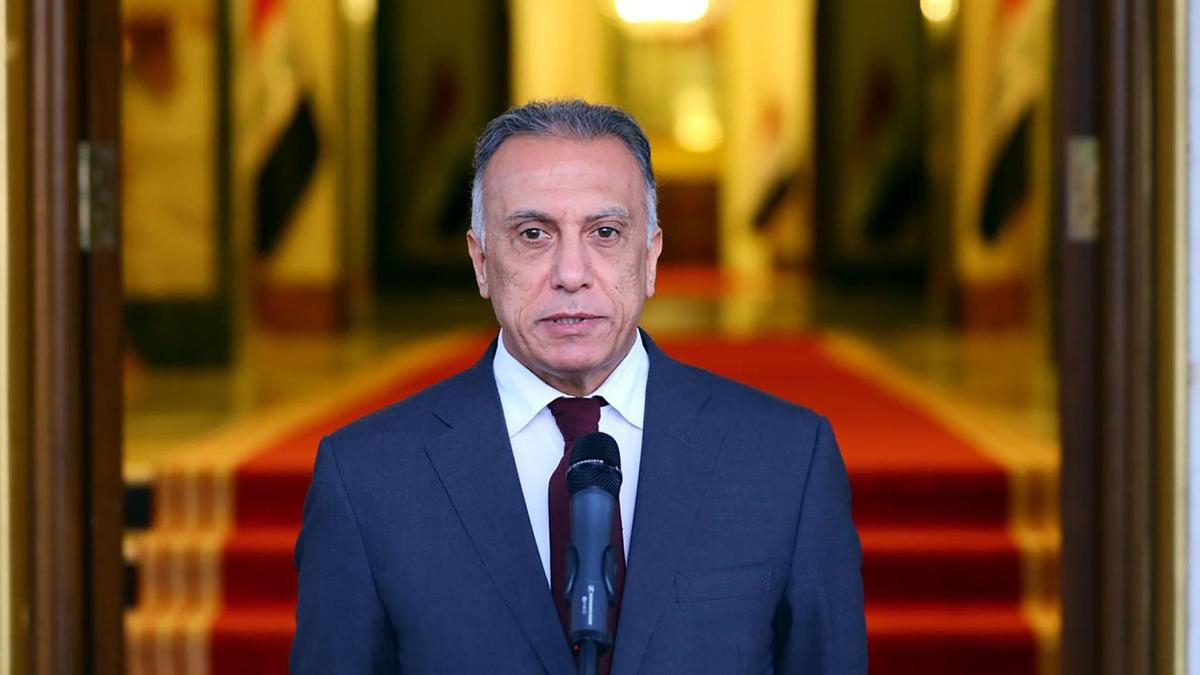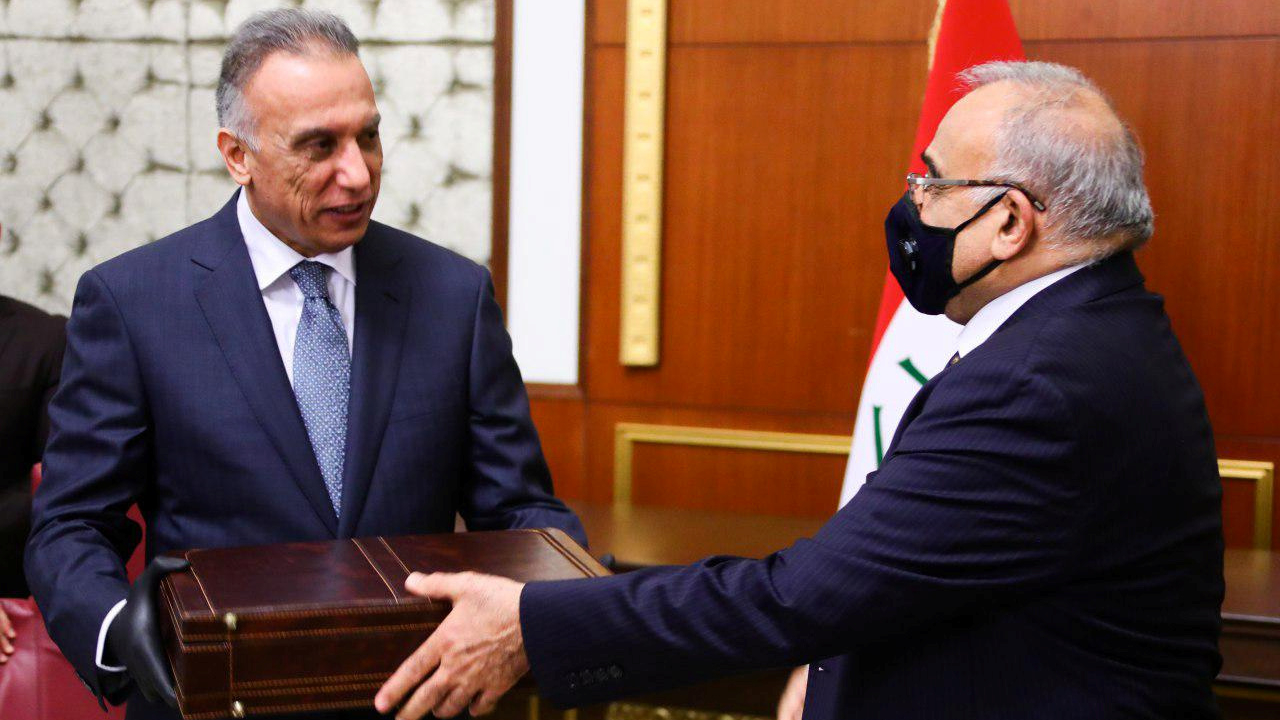Iraq's newly appointed Prime Minister Mustafa al-Kadhimi on Saturday chaired his first cabinet meeting since being sworn in, following weeks of tense political negotiations.
He also had separate meetings with the American and Iranian ambassadors to Iraq.

Iraqi Prime Minister Mustafa al-Kadhimi is delivering a speech following the ministerial meeting of the new Iraqi cabinet in Baghdad, Iraq, May 9, 2020. /AFP
Iraqi Prime Minister Mustafa al-Kadhimi is delivering a speech following the ministerial meeting of the new Iraqi cabinet in Baghdad, Iraq, May 9, 2020. /AFP
During his meeting with U.S. Ambassador to Iraq Matthew Tueller, al-Kadhimi underscored the need for bilateral cooperation in the economic and security fields, as well as for preparing for the strategic dialogue between the two countries, the prime minister's media office said in a statement.
Al-Kadhimi also asserted the need to maintain security and stability in the region, while reiterating that Iraq will not be a ground for settling accounts and launching attacks on any neighboring or friendly country, the statement said.
Also in the day, al-Kadhimi held a meeting in his office with Iranian Ambassador to Iraq Iraj Masjedi, during which he confirmed Iraq's keenness to maintain the best relations with Iran and all other neighboring countries to serve the interests of the two countries, as well as regional security and stability, al-Kadhimi's media office said in a separate statement.

Former Iraqi Prime Minister Adel Abdul Mahdi (R) is seen at a hand-over ceremony with new Prime Minister Mustafa al-Kadhimi in Baghdad, Iraq, May 7, 2020. /Reuters
Former Iraqi Prime Minister Adel Abdul Mahdi (R) is seen at a hand-over ceremony with new Prime Minister Mustafa al-Kadhimi in Baghdad, Iraq, May 7, 2020. /Reuters
Announcing a series of new government measures in a televised speech to the nation following his first cabinet meeting, al-Kadhimi promised to release protesters arrested for involvement in popular demonstrations.
He said all those who had been arrested for participation in the protests would be released with the exception of those who had been involved killings.
His government has also announced the creation of a committee to investigate attacks on protesters from October to the present.
He also reiterated his government's key priority of creating a safe and secure environment for early elections to take place and support for the work of Iraq's electoral commission.
Tensions between Iran and the U.S. on Iraqi soil have been rising since the U.S. assassination of Qassem Soleimani, commander of the Quds Force of Iran's Islamic Revolution Guards Corps, and Abu Mahdi al-Muhandis, deputy chief of Iraq's paramilitary Hashd Shaabi forces, in a drone attack near Iraqi capital Baghdad in January.
The Iranian-backed militias have frequently attacked Iraqi military bases housing U.S. troops across Iraq as well as the U.S. Embassy inside the heavily fortified Green Zone in central Baghdad.
Read more:
Infographic: 15th anniversary of U.S. war on Iraq
Around 5,000 U.S. troops have been deployed in Iraq to support Iraqi forces in the battle against ISIL, mainly for training and advisory purposes.
Al-Kadhimi was nominated by President Barham Salih in April, shortly after the previous designated prime minister, Adnan al-Zurfi, announced he was withdrawing having failed to secure enough support to form a government.
Adel Abdul Mahdi, who resigned under pressure from anti-government protests in November, still heads the government as caretaker prime minister. Salih's first choice to replace him, Mohammed Allawi, withdrew on March 1 after four fruitless weeks trying to gain support.